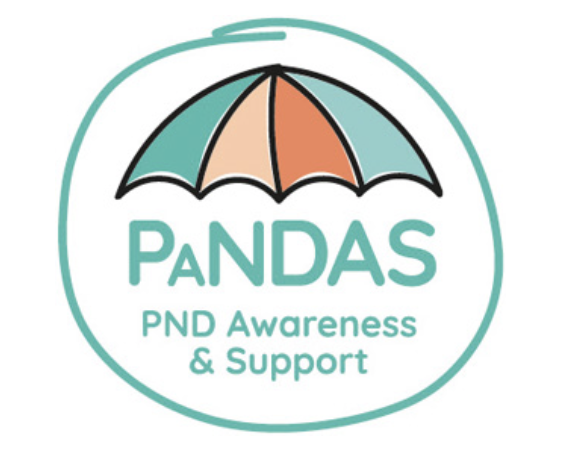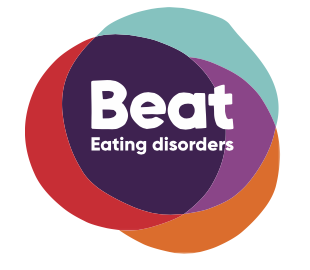Looking after yourself
Parenting and your mental health
You are the most important person in your child's life. It can be easy to forget about your own needs when caring for your baby or child.
There is no one reason why some people experience mental health problems during parenthood.
Some common factors could be:
- lack of sleep
- lack of support from friends and family
- uncertainty about parenthood
- problems in pregnancy
- birth events which were different from what you expected
- feeling disappointed if parenthood is not what you expected
- changes in your relationships and social life
- other significant stressful events, for example loss of job, physical illness, relationship breakdown, bereavement
It is essential that you find the right type of support as soon as possible if you are experiencing mental health problems.
Please contact your GP, call 111 or access one of the services listed below.
If you or your partner's life is at immediate risk, please call 999.
Postpartum Psychosis
Postpartum psychosis is a rare but severe mental health condition that affects people after they give birth. Symptoms usually start suddenly within the first 2 weeks after giving birth more rarely, they can develop several weeks after the baby is born.
Symptoms can include:
- Hallucinations (hearing, seeing, smelling or feeling things that are not there)
- Delusions (suspicions, fears, thoughts or beliefs that are unlikely to be true)
- Mania – feeling very "high" or overactive, for example, talking and thinking too much or too quickly, restlessness or losing normal inhibitions
- Rapidly changing moods
- Feeling very confused
For more information on symptoms of Postpartum Psychosis, see the APP website.
If you feel at all worried about any of the symptoms on this page don’t delay in talking to your GP, out-of-hours service, midwife, health visitor or mental health crisis team (if you have one).
Get help in your local area
- Need urgent help? If you experience mental health crisis, you can get support with Oxfordshire Safe Haven by calling 01865 903 037. The referral line is open 365 days a year from 11.30am to 9.30pm. You must call first to book an appointment for the same day
- Breathing Space can help if you have a child under 1 and are struggling
- “Knowing Me, Knowing You” is a virtual parent course for women or main carers and their babies, under 12 months, who are experiencing low mood, anxiety or feeling isolated. The course provides a safe and supportive environment.
- Dad's and partner's group can help if your partner has recently had a baby and you're struggling with feelings of low mood, depression or anxiety
- If you have a child under 5 and are struggling, Home Start volunteers offer regular support, friendship and practical help to families under stress in their own homes helping to prevent family crisis and breakdown. Home Start Oxford, Home Start Banbury, Home Start South Oxfordshire
- Oxfordshire Mental Health Partnership brings together six specialist mental health organisations to create positive initiatives that improve the lives of people living with mental health challenges
- OXPIP provides therapeutic support for parents and infants from conception to two years who are in need of assistance to establish and build close and nurturing relationships
-
Oxfordshire Talking Therapies (formerly TalkingSpace Plus) can help if you are feeling low, anxious or stressed
-
The Motherkind Café is an Oxfordshire peer support group for mums of under 5s and mums-to-be who are worried about their mental health or wellbeing
For more information, see our local support services page.
Oxfordshire Early Help may be able to assist, please see their leaflet here.
National support services & resources
![]() Papyrus If you are under 35 and feel that life is not worth living any more, call Papyrus's Hopeline UK on 0800 068 41 41 from 9am to 10pm weekdays and 2pm to 10pm on weekends.
Papyrus If you are under 35 and feel that life is not worth living any more, call Papyrus's Hopeline UK on 0800 068 41 41 from 9am to 10pm weekdays and 2pm to 10pm on weekends.
![]() Samaritans Call free on 116 123 24 hours a day, 365 days a year. Speak to some who is trained to listen with no judgement or pressure, and help you work through what's on your mind.
Samaritans Call free on 116 123 24 hours a day, 365 days a year. Speak to some who is trained to listen with no judgement or pressure, and help you work through what's on your mind.
 SHOUT 85258 offers confidential crisis text support 24 hours a day, 7 days a week for times when you need immediate assistance. By texting the word ‘SHOUT’ to 85258 you will start a conversation with a trained Shout Volunteer, who will text you back and forth.
SHOUT 85258 offers confidential crisis text support 24 hours a day, 7 days a week for times when you need immediate assistance. By texting the word ‘SHOUT’ to 85258 you will start a conversation with a trained Shout Volunteer, who will text you back and forth.
 MIND Infoline 0300 123 3393 provides advice and support to empower anyone experiencing a mental health problem. Infoline provides an information and signposting service. It's open 9am to 6pm, Monday to Friday (except for bank holidays). Visit MIND for tips on parenting and mental health
MIND Infoline 0300 123 3393 provides advice and support to empower anyone experiencing a mental health problem. Infoline provides an information and signposting service. It's open 9am to 6pm, Monday to Friday (except for bank holidays). Visit MIND for tips on parenting and mental health
![]() DadPad A guide for new dads. Provides you with the knowledge and practical skills necessary to support you and your partner with parenthood.
DadPad A guide for new dads. Provides you with the knowledge and practical skills necessary to support you and your partner with parenthood.
![]() Relate If you're having problems in your family life, there are lots of ways they can help you. You might be a parent worried about your child's behaviour or how relationship problems may impact on your family.
Relate If you're having problems in your family life, there are lots of ways they can help you. You might be a parent worried about your child's behaviour or how relationship problems may impact on your family.
![]() Family Lives Call free on 0808 800 2222 for emotional support, information, advice and guidance on any aspect of parenting and family life. If you don’t get an answer first time please do try again.
Family Lives Call free on 0808 800 2222 for emotional support, information, advice and guidance on any aspect of parenting and family life. If you don’t get an answer first time please do try again.
 PANDAS Postnatal depression awareness and support. Call free on 0808 1961 776 between 11am and 10pm every day. Call them if you’re struggling with helplessness, low mood, anxiety or have any concerns about your health during or beyond your pregnancy.
PANDAS Postnatal depression awareness and support. Call free on 0808 1961 776 between 11am and 10pm every day. Call them if you’re struggling with helplessness, low mood, anxiety or have any concerns about your health during or beyond your pregnancy.
![]() NSPCC advice on parenting and mental health.
NSPCC advice on parenting and mental health.
 Beat is the UK’s eating disorder charity for people with eating disorders and their families. Call 0808 801 0677 from 12pm to 8pm on weekdays and 4pm to 8pm on weekends and bank holidays.
Beat is the UK’s eating disorder charity for people with eating disorders and their families. Call 0808 801 0677 from 12pm to 8pm on weekdays and 4pm to 8pm on weekends and bank holidays.
![]() Drinkline is an alcohol helpline providing confidential counselling, support, advice and information. Call 0300 123 1110 free on weekdays from 9am to 8pm and on weekends from 11am to 4pm.
Drinkline is an alcohol helpline providing confidential counselling, support, advice and information. Call 0300 123 1110 free on weekdays from 9am to 8pm and on weekends from 11am to 4pm.
![]() Read YoungMinds Parent's Guide to Looking After Yourself.
Read YoungMinds Parent's Guide to Looking After Yourself.
![]() Headspace App for mindfullness and meditation exercises.
Headspace App for mindfullness and meditation exercises.
![]() NHS Self Help guides on a range of mental health problems.
NHS Self Help guides on a range of mental health problems.




